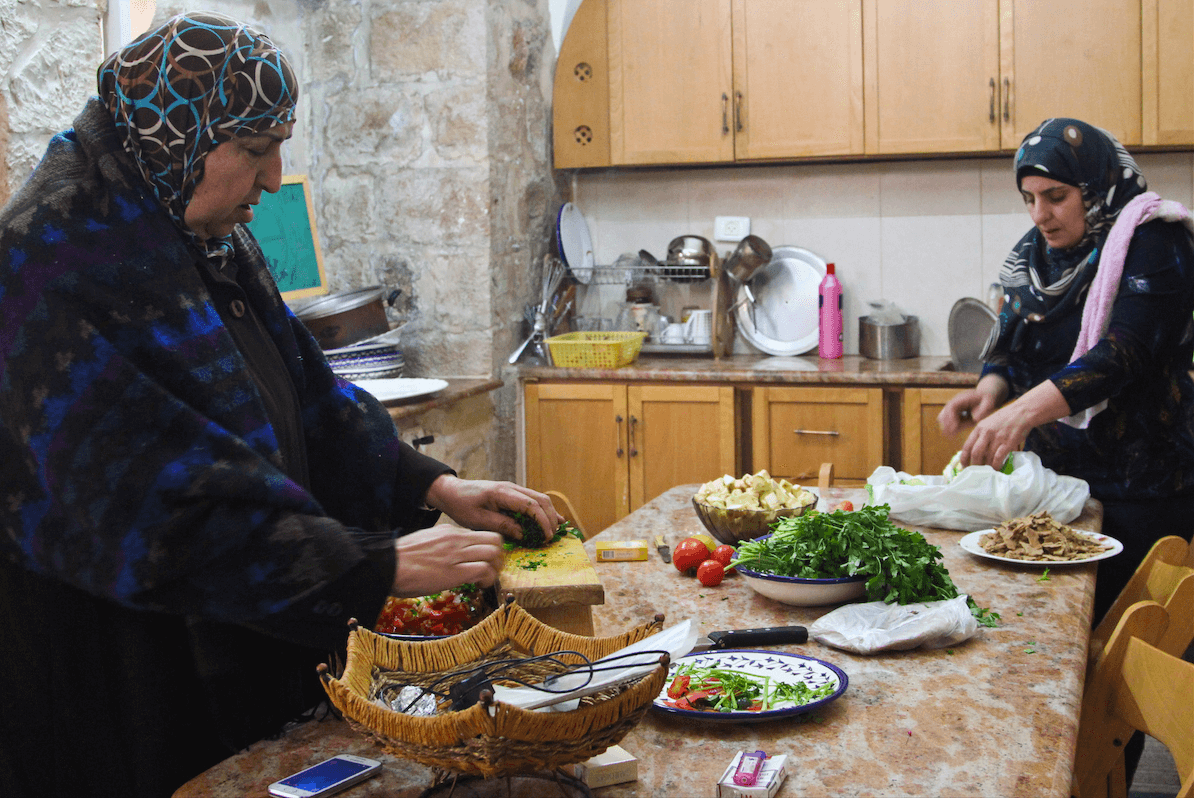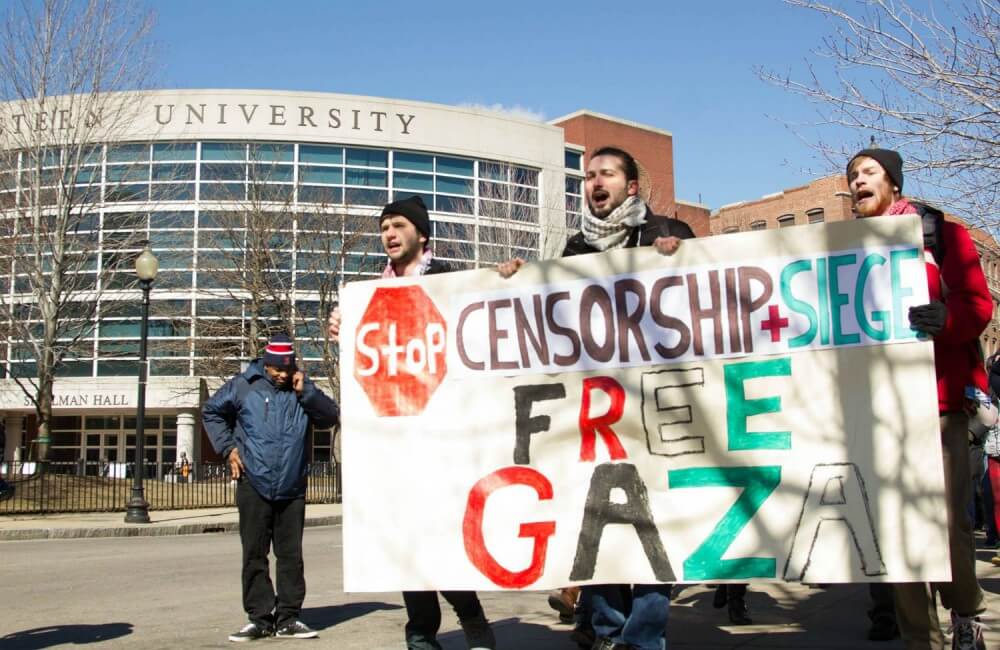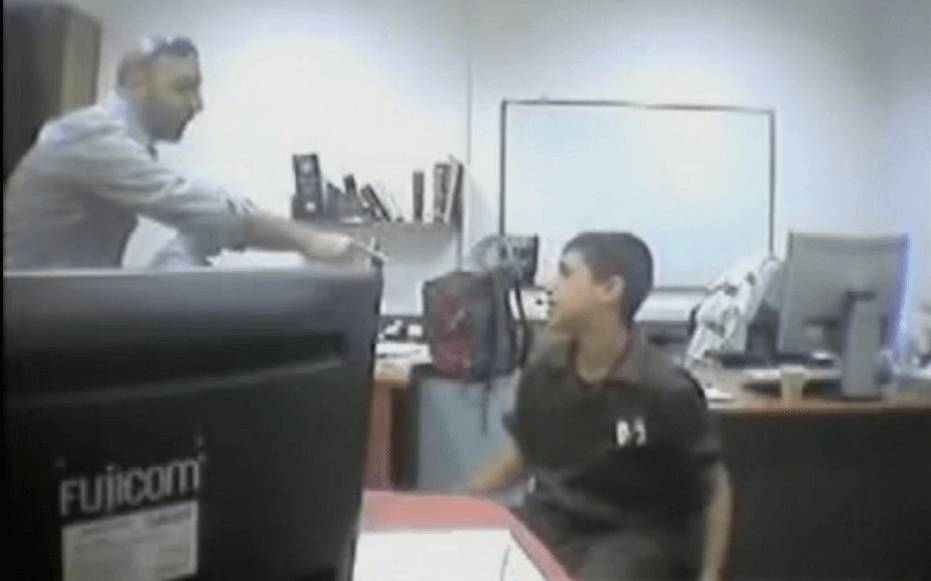Hundreds of military checkpoints scattered around the occupied Palestinian territory are prone to arbitrarily closure without prior warning, restricting the freedom of movement for Palestinians whose daily lives are already defined by a sense of chaos, temporariness and unpredictability. However, a new smartphone app Azmeh – which translates to mean ‘traffic jam’ in Arabic – has been designed to tackle this very problem.
“We are being treated as if we were criminals”, said Ayed Al Azzeh, shaking his head. A schoolteacher from Bethlehem, Ayed is one of thousands of public-sector teachers across the West Bank who have been striking since February 10th. The strike comes after teachers claim the Palestinian Authority (PA) failed to follow through with wage increases. Approximately 20,000 protestors demonstrated in Ramallah upon the launch of the strike in the largest gathering since Arafat’s death in 2004, initiating a government crackdown on any further attempts of mass mobilization. Despite the efforts of the Palestinian police and army, an estimated 15,000 protestors gathered in Ramallah for a second time on Tuesday, demanding the government meets their demands. In an exclusive video for Mondoweiss, teachers at Tuesday’s protest reveal the obstacles they had to overcome merely to be present, and why they are resolute to continue the strike until the government concedes.
Megan Hanna reports from Bait al Karama – “the House of Dignity” – a cooking school situated in the heart of the Old City of Nablus. Established in 2008, the school rests on the principle that it is just as effective to fight the Israeli occupation through food as Molotov’s and stones.
Megan Hanna reports from Hebron, where the neighborhood of Tel Rumeida is one of the most contested residential areas in the West Bank, including a Palestinian neighbourhood and an Israeli settlement within its boundaries. Since November, Tel Rumeida was declared a closed military zone, effectively ghettoizing the district. But Tel Rumeida’s problems long-precede the current spate of violence. An archaeological site, which dates back to the middle Bronze Age, has been the focus of a battle between settlers of the area, the Palestinian municipality of Hebron and numerous rights groups – notably Emek Shevah, an organization of archaeologists who focus on the role and misuse of archaeology in the Israel-Palestine crisis.
The university is often imagined to be a utopian space where academic debates are freely and fiercely waged, traditional orthodoxies are challenged and marginalized opinions can be voiced without fear of personal attack. However, a disturbing movement across US campuses has been repressing pro-Palestinian free speech, and attacks those who are peacefully advocating human rights. A new report documents burgeoning attacks on pro-Palestinian human rights advocates in the US, with most of the victims being students and scholars.
Recent Israeli raids on Palestinian hospitals and schools have coincided with a rise in psychological trauma in the occupied Palestinian territory. But it’s not just Israel’s military actions that are contributing to this worrying trend. The lack of accountability for settlers whose violent attacks are rarely prosecuted and seem to operate in an environment of impunity also play a part. A report from Médecins du Monde France released last month assessed the psychological damage to 72 direct and indirect victims of the Duma arson, where a Palestinian family was burned alive inside their home. Their findings showed that 82% of the beneficiaries are at severe risk of developing PTSD, and 45% are unable to carry out daily activities such as cleaning and cooking.
A controversial video leaked to Palestinian media on November 8th depicts an Israeli interrogator verbally abusing and shouting curses at 13-year old Ahmad Manasra, who was indicted on October 30th by Israel’s Jerusalem District Court for attempting to murder two Israelis near the Pisgat Zeev settlement in East Jerusalem. Brad Parker, attorney and international advocacy officer at Defence for Children – Palestine, tells Mondoweiss: “The circumstances depicted in the video present a situation that may amount to torture. When determining if certain acts constitute torture, the child’s age must be taken into account. Israeli interrogators are seen relying on verbal abuse, intimidation and threats to apparently inflict mental suffering for the purpose of obtaining a confession.”
Hebron’s Old City is subject to dramatic new restrictions introduced last week. 50 families who live in Tel Rumeida had a mere few days to register their name and ID card to the Israeli authorities and they will have to undergo rigorous security searches every time they wish to leave or enter their homes. According to one resident, “They told me I have the number 36 [on the list with who’s allowed to go in and out], it’s just like in prison. They try to make you a number, you’re not a person”.







